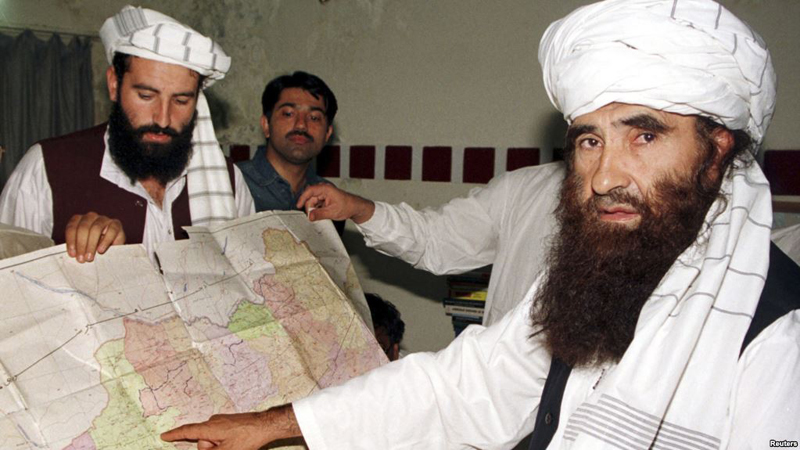The deputy leader of the Taliban and one of the world’s most wanted people by the United States (US) and United Nations (UN) has written an opinion piece for the mighty New York Times in which he says the Afghan Mujahidins are “fully committed” to a deal with the United States of America.
In the roughly 1,000 word opinion column titled “What We, the Taliban, Want”, Taliban deputy leader Sirajuddin Haqqani wrote that the longest American war in history had “exacted a terrible cost from everyone,” and that the Taliban were forced to defend themselves from the US and its allies.
Notably, the article quoted a critical statement from the Taliban in months of negotiations with the United States, and came as they were believed to be days away from signing an agreement with Washington. It is also believed to be the first time that Sirajuddin Haqqani, head of the Haqqani network, has given such a lengthy statement in English. This article got clearance from very well reputed and experienced New York Times editorial board who must have taken into confidence Zalmay Khalilzad and company.
Previously, he communicated mainly through rare audio messages, usually in Pashto. The most recent one on a Taliban website was dated June 2017. In the article, Haqqani reinforces several demands that were presented before the US on the negotiation table from Taliban, including how women are to be treated according to Islamic principles.
Interestingly, the column does not mention Haqqani’s position over recognising the legitimacy of the US-backed Afghan government, which is led by President Ashraf Ghani or whether the Taliban intends to join it. President Ashraf Ghani who took charge in December 2019 for his second term after being elected in September 2019, faces tough opposition by Abdullah Abdullah who has questioned the legitimacy of Afghan election results.

On the other hand, Pakistan is facilitating this peace deal and has high stakes in the whole process. Since, Pakistan army and security agencies have been battling terrorism for last twenty years, this Peace Accord will bring stability in the region as a peaceful Afghanistan means a peaceful Pakistan. Pakistan is bearing the entire burden of the deal. Yet, Trump administration would take full credit for melting the ice being the ‘Patron of Peace’ in the world. Furthermore, this would be a strategic tool in November’s presidential elections in the United States.
This column in New York Times is expected to be the beginning of a new era in US-Taliban relations, after the Peace Accord. Taliban top leadership will visit Washington soon as legitimate leaders of Afghanistan. This column by Sirajuddin Haqqani can be taken as policy statement of the modified version of Taliban.
“We are about to sign an agreement with the United States and we are fully committed to carrying out its every single provision, in letter and spirit,” Haqqani writes. But he also admitted that Taliban are “aware of the concerns and questions” over any potential Taliban restoring to power. Many Afghans have voiced anger at being sidelined from the talks, and resistance to returning to life under the Taliban’s repressive regime — though many others simply want security and the violence to end.
“My response to such concerns is that it will depend on a consensus among Afghans,” Haqqani writes, adding that the Taliban were ready to agree on “a new, inclusive political system in which the voice of every Afghan is reflected and where no Afghan feels excluded”.
He also states that concerns about Afghanistan being used by foreign militant groups to “threaten regional and world security” are “inflated”.
Sirajuddin Haqqani is very influential among certain segments of Pakistan and Afghanistan, thus this column is taken very positively by both establishments. On the other hand, New York Times is facing backlash from different segments for publishing Sirajuddin Haqqani’s column. This policy shift in New York Times editorial board is predicting a stronger and serious bond between the United States, Taliban and Pakistan.
The writer is web editor of Daily Times
